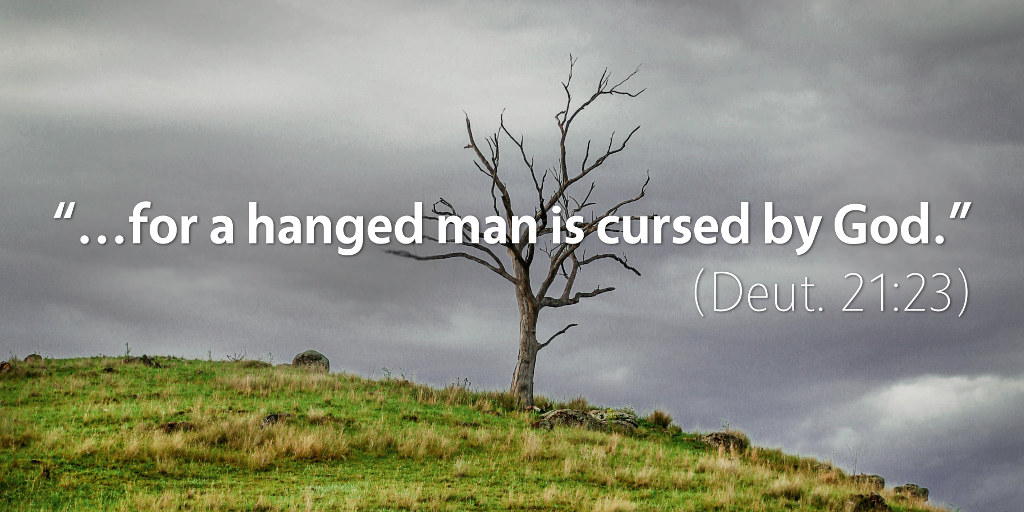Bible Readings for June 16th
Deuteronomy 21 | Psalms 108–109 | Isaiah 48 | Revelation 18
Deuteronomy 21:22–23 contains critical background information for understanding Jesus’ crucifixion. Here, we see that the cross was not a last-minute mistake but that Yahweh had been preparing to execute his own Son on a tree from the beginning. Deuteronomy 21 helps us better understand the crucifixion of Christ in three ways.
First, hanging on a tree was only for the most heinous of crimes. It is clear from these verses that not all death penalties required hanging on a tree—only those who had committed an unusually horrific crime should be hanged out on display in the sight of the whole nation. There were crimes that required the death penalty, but the phrase “and you hang him on a tree” (Deut. 21:22) was an extra humiliation that could be added to the punishment for a capital crime.
Second, the reason that hanging on a tree was a punishment reserved for the worst crimes is that anyone hanged on a tree was considered to be cursed by God (Deut. 21:23). There was an extra level of shame heaped upon a criminal whose body was hoisted up on the tree, visible for all to see, signifying that God’s wrath had turned against him.
Third, this curse was so powerful that it would infect the whole land if the cursed man was not removed and buried before nightfall (Deut. 21:23). We are not talking about God’s mild displeasure—we are talking about a deep curse that would overturn creation itself if Israel did not take specific steps to avoid defiling the land that God was giving them as an inheritance.
For many Jews, this was a key point of evidence against the claims that Jesus was the Messiah—how could a man who had been crucified on a tree be the chosen servant of God? The Apostle Paul, however, points to this provision from the law as evidence for believing on Christ in Galatians 3:13, writing that Christ redeemed us from the curse of the law by becoming a curse for us—for it is written, ‘Cursed is everyone who is hanged on a tree.’”
Where we all were under the curse of the law—and where even creation had become infected by this curse (Rom. 8:18–25)—Jesus Christ became a curse for us by dying on a tree in our place. He did this, Paul explains, to redeem us from the curse of the law and to bring the blessing of Abraham to us Gentiles, so that we might receive the promised Spirit through faith (Gal 3:13–14). While all of this theology was established in Deuteronomy, its significance did not become clear until Jesus came.
Understand—you are the criminal who deserves to hang cursed on the tree. Praise God today for his mercy in handing his own Son over to your curse.
Podcast: Play in new window | Download (5.1MB) | Embed
Subscribe: Apple Podcasts | RSS | More

Scripture quotations are from The Holy Bible, English Standard Version copyright © 2001 by Crossway Bibles, a division of Good News Publishers. Used by permission. All rights reserved.


